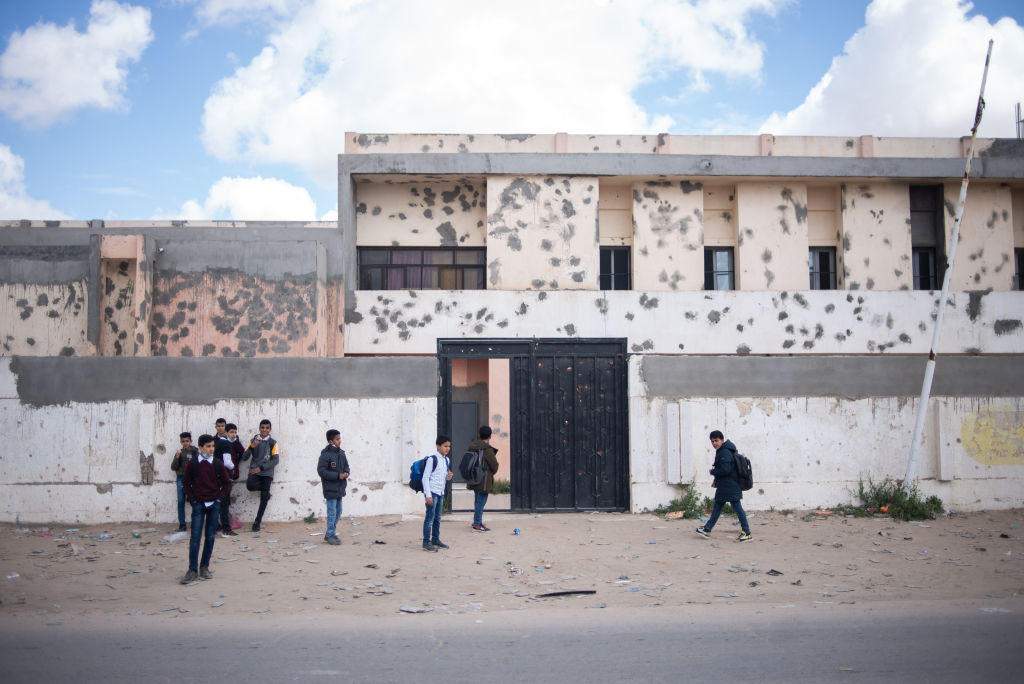Wagner Mercenaries Remain a Barrier to Peace in Libya
ADF STAFF
Nearly five years after they first arrived in Libya, Wagner Group mercenaries show no signs that they’re willing to leave the country, despite a joint demand by representatives of Libya’s rival governments for them to do so.
Since the 2020 ceasefire that ended active hostilities between Libya’s warring factions, an estimated 2,000 Wagner mercenaries have settled in the central part of the country. From there, they continue to train soldiers based in the east under the command of Gen. Khalifa Haftar.
Wagner fighters have focused much of their activity around oil facilities in the eastern Cyrenaika province bordering Egypt.
Tripoli-based Interim Prime Minister Abdul Hamid Dbeibah has called Wagner’s presence in Libya “a stab in our back.”
Experts say Wagner’s current activities are in keeping with patterns it has established elsewhere in Africa — patterns that emphasize resource extraction for the benefit of Moscow.
“Wagner tends to target countries with natural resources that can be used for Moscow’s objectives — gold mines in Sudan, for example, where the resulting gold can be sold in ways that circumvent Western sanctions,” said Catrina Doxsee, an expert on Wagner at the Centre for Strategic and International Studies, told the Associated Press.
The Wagner Group arrived in Libya in 2018, on the heels of other mercenaries who came the year before under a demining contract with Libya’s eastern government. Wagner fighters quickly joined the fray on the side of Haftar’s forces, including the failed attempt to take Tripoli, the internationally recognized capital, in 2020.
Following Haftar’s retreat, residents returning to their communities found hundreds of booby-trapped Russian explosives, landmines and other ordnance hidden among the remains of buildings.
During the peak of fighting in 2020, Wagner mercenaries, along with fighters from Sudan, took control of Libya’s main oil terminal in Sirte. They were eventually forced out about a year later.
In early 2021, satellite photos showed that Wagner forces had dug a 70-kilometer fortified trench running from north to south to protect their position at an airfield near Al Jufra. The trench ran through Libya’s primary oil-drilling region — an attempt, experts said, to keep Wagner in control of part of the resource.
The Russian invasion of Ukraine a year ago prompted Wagner to redeploy several hundred fighters away from Libya; thousands remained in the country.
With at least three airbases, military camps and spies on the ground, the Wagner Group has become a key component of Haftar’s military strength and his ability to control eastern Libya, analysts say.
“You clearly have reliance on the perennial and permanent character of the Russian footprint in Libya,” analyst Jalel Harchaoui of the Royal United Services Institute told Al Jazeera. “Even the reduction, the modest drawdown of probably 300 or 400 individuals, is not the end of the mission. It doesn’t presage, announce, or augur capitulation.”
The presence of Wagner fighters complicates Libya’s faltering attempts to stitch itself back together and hold national elections. Those elections were originally set for late 2022 but remain on hold as rival leaders construct a legal framework under which to hold them.
On top of that, Libya is filled with smaller militias that display shifting loyalties to each side of the political divide.
According to William Lawrence, a former diplomat and expert on the region who teaches at American University, Wagner mercenaries serve as “spoilers” in the political process, leaving open the possibility that the country could return to war if it can’t resolve its elections impasse.


Comments are closed.